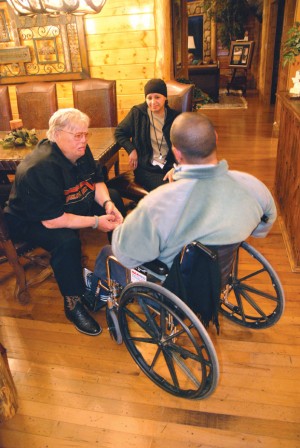Honoring our Veterans
I was never a member of the armed services. My father was. He served during World War II as a lieutenant in the Army Air Corps, flying paratrooper missions over Germany. I graduated from high school two months after the fall of Saigon, which officially ended the U.S. involvement in the Vietnam War.
For some reason I still have my selective service card – maybe for historical purposes, but I also recall that my lottery number was pretty high, something like 320, so I wasn’t too concerned about being drafted to fight in that ill-conceived conflict.
Before I delve too far into this topic, let me offer that I am not flatly against all wars. I thought our involvement in the Bosnian War was necessary to rein in Milosovich and halt the ethnic cleansing and genocide that was occurring there. I even supported the limited NATO mission in Libya, mostly to prevent civilian casualties and to see Moammar Gadhafi finally ousted. The mission in Afghanistan seemed like to right thing to do at the time as a response to 9-11 and the atrocities of the Taliban. Eleven years later it looks like a quagmire with no easy way out. Consider this: we’ve been there two years longer than the Soviets during their failed-occupation in the 1980s with still no end in sight.
As regards Iraq, I was against both wars. The first invasion seemed based upon cooked-up intelligence about Saddam Hussein despite the actual ongoing theft of Iraqi oil by Kuwait. The second invasion, collectively shoved down the throats of Americans, was based on lies, misinformation, greed, profits and the supposed need for revenge.
Now there are some clamoring for war with Iran even though these exercises in the Mid-East are helping to bankrupt the treasury (but certainly filling the coffers of the likes of Halliburton, Lockheed, General Dynamics, etc.). I read recently that the Department of Defense announces contracts valued at $5 million or more each and every business day.
What we are not hearing much about are the veterans returning from these conflicts. There have been no ticker-tape parades for them – no, those are reserved for the overpaid winners of the Super Bowl. Suicide rates for returning vets are a national disgrace. According to armytimes.com, in 2009 alone, 1,868 veterans of our 21st century occupations attempted suicide. The Veteran’s Administration estimates that a veteran commits suicide every 80 minutes; about 18 a day. That is a staggering number and one that is conveniently left off the casualty figures provided by the DOD. It seems so easy to enlist these men and women with promises of job training, adventure, patriotism and duty, which all seems to end abruptly after they have served their purpose for the lawmakers sending them to battle.
President Abraham Lincoln, in his second inaugural address towards the end of the U.S. Civil War in 1865, famously called for good treatment of veterans: “to care for him who shall have borne the battle, and for his widow, and his orphan.”
In researching the stories we’ve published this month, we believe the VA is making the most of a bad situation but it should not be that way. Every saber-rattling senator or congressman agitating for more war (usually non-veterans themselves) should be required to spend extended amounts time in veterans hospitals – changing bandages, emptying chamber pots, consoling family members and listening to the stories these men and women have brought back of the horrors and futility of war.
– Mike Rosso



